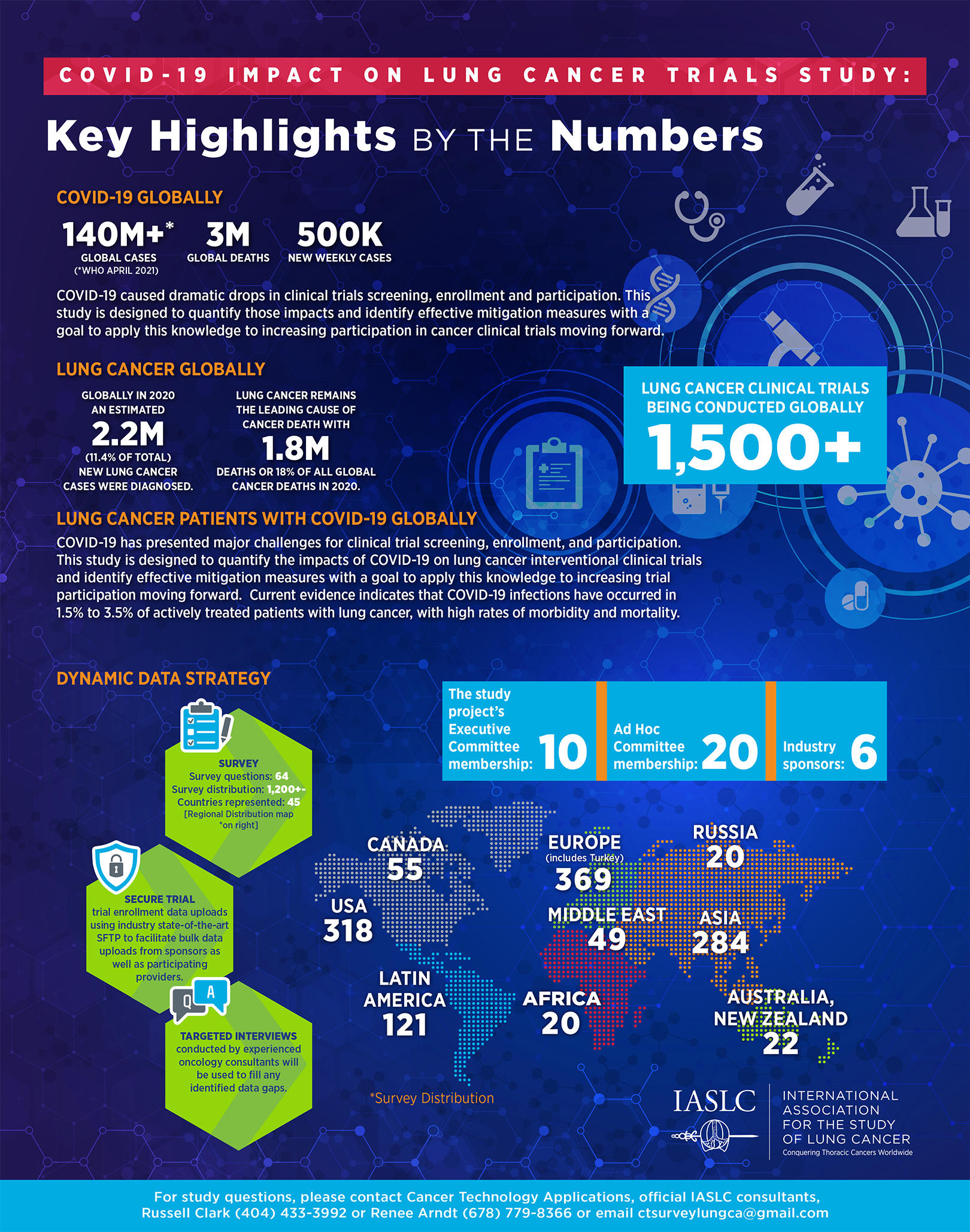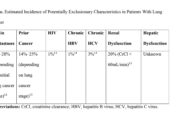Although clinical trials are vitally important to researchers working to improve therapies for lung cancer, clinical trials also provide what could be lifesaving treatments to those patients on trials. When there is a disruption to the clinical trial pipeline—anything from funding to barriers to in-person site visits for treatments and follow up exams— lung cancer improvements may be delayed. COVID-19 resulted in significant changes to enrollment, conduct, and funding of clinical trials on an international scale. Data compiled by the Cancer Research Institute and IQVIA determined for a period between March 23 and April 3, 2020 found that, of the more than 200 trials and 36 investigators in the United States and Europe involved, only 14% to 20% were continuing to enroll during that period.1
In an effort to understand the declines in and barriers to lung cancer clinical trial enrollment, as well as to evaluate mitigation strategies so as to begin to improve enrollments throughout the remainder of the pandemic and well into the future, the IASLC is conducting a survey of invited, community, academic and industry clinical trial investigators from around the world.
The study consists of two parts, the Action Survey and the Data Collection Survey. The data collection provides the clinical trial enrollment by month, while the Action Survey identifies impacts and mitigation measures while evaluating the effects of the application of mitigation strategies. In the analysis the IASLC aims to report and evaluate impacts and mitigation strategies by region, trial type, and COVID-19 burden. Once the data are evaluated, the IASLC would be able to formulate recommendations for reducing barriers by region, as well as by COVID-19 burden. In addition, the data will provide insights into future trial design focused on increasing patient participation in lung cancer clinical trials based on lessons learned during the pandemic.
Paul Bunn, MD, chair of the IASLC committee and one of the survey creators, told ILCN that the idea for the survey was conceived “so that clinical trial accruals could increase worldwide not only during the current pandemic but after the pandemic as well.” The surveys are being done with the assistance of Russell Clark and Renee Arndt from Cancer Technology Applications, and an IASLC committee consisting of IASLC President Tetsuya Mitsudomi, MD; Incoming President Heather Wakelee, MD; Past President Giorgio Scagliotti, MD; former CEO, Fred Hirsch, MD, PhD; current CEO Dave Mesko; and statistician Matthew P. Smeltzer, PhD. An international committee of IASLC members from world-wide regions also is contributing.
Although data compilation during the pandemic can be a moving target, it is vitally important for building an awareness about the effects of a global health situation on lung cancer clinical trials, as thoracic oncology professionals are already seeing dips in screening rates and increases in later-stage diagnoses across various regions.
IASLC President Tetsuya Mitsudomi, MD, said, “The impact of COVID-19 is variable depending on the geographic areas. In addition, lung cancer is very heterogeneous in terms of histologic distribution, driver gene frequency, and even stage distribution. Through the international exchange of the information on the current status of clinical trials or on any mitigation procedures using the IASLC network, we will be able to come up with new ideas for conducting clinical trials more efficiently and safely, which will also be useful in the post-pandemic era.“
The IASLC hopes to report on survey data at the 2021 World Conference on Lung Cancer to be held September 8-14. For more information, or to register, visit wclc2021.iaslc.org.

- 1. Upadhaya S, Yu JX, Olivia C, Hooton M, Hodge J, & Hubbard-Lucey VM. Impact of COVID-19 on oncology clinical trials. https://www.nature.com/articles/d41573-020-00093-1. Accessed April 28, 2021.




